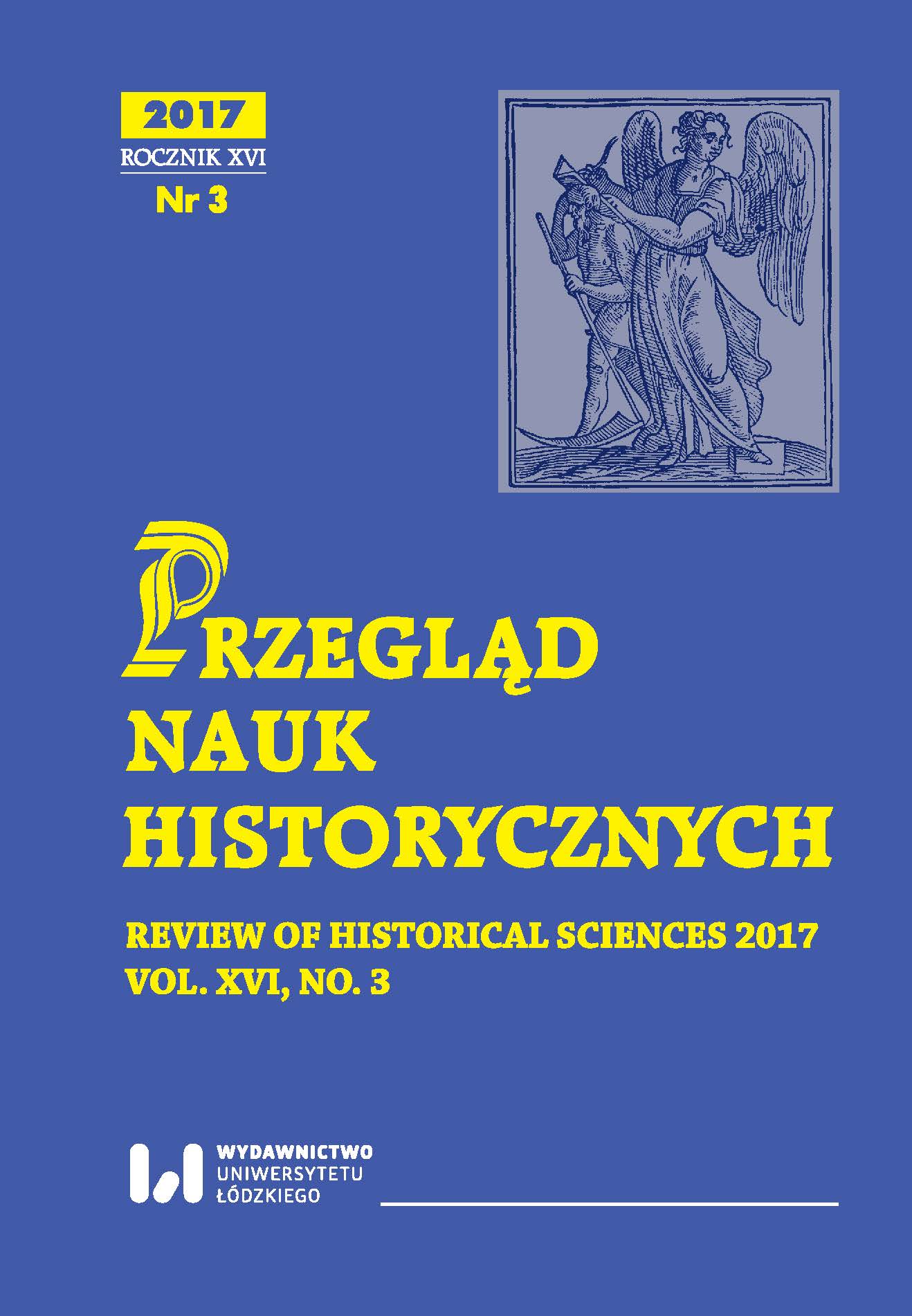
We kindly inform you that, as long as the subject affiliation of our 300.000+ articles is in progress, you might get unsufficient or no results on your third level or second level search. In this case, please broaden your search criteria.

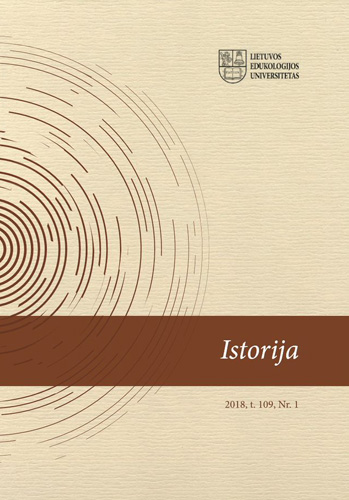
The article is dedicated to Antanas Olis (1898–1958), a Lithuanian American public and political figure, lawyer. It analyses the key moments of his life and activities, his influence in the political, public and cultural life of the émigré community. The article investigates the activities of Antanas Olis after Lithuania’s occupation by the Soviets when he actively joined political activities and made a special contribution in organising and participating in various political campaigns which sought to bring up the issue of Lithuania among Americans. Through his ties with Americans and his work in the national Republican Party group, Olis won his way to the broader horizons of the US politics in the attempt to draw attention to the case of the freedom of Lithuania.
More...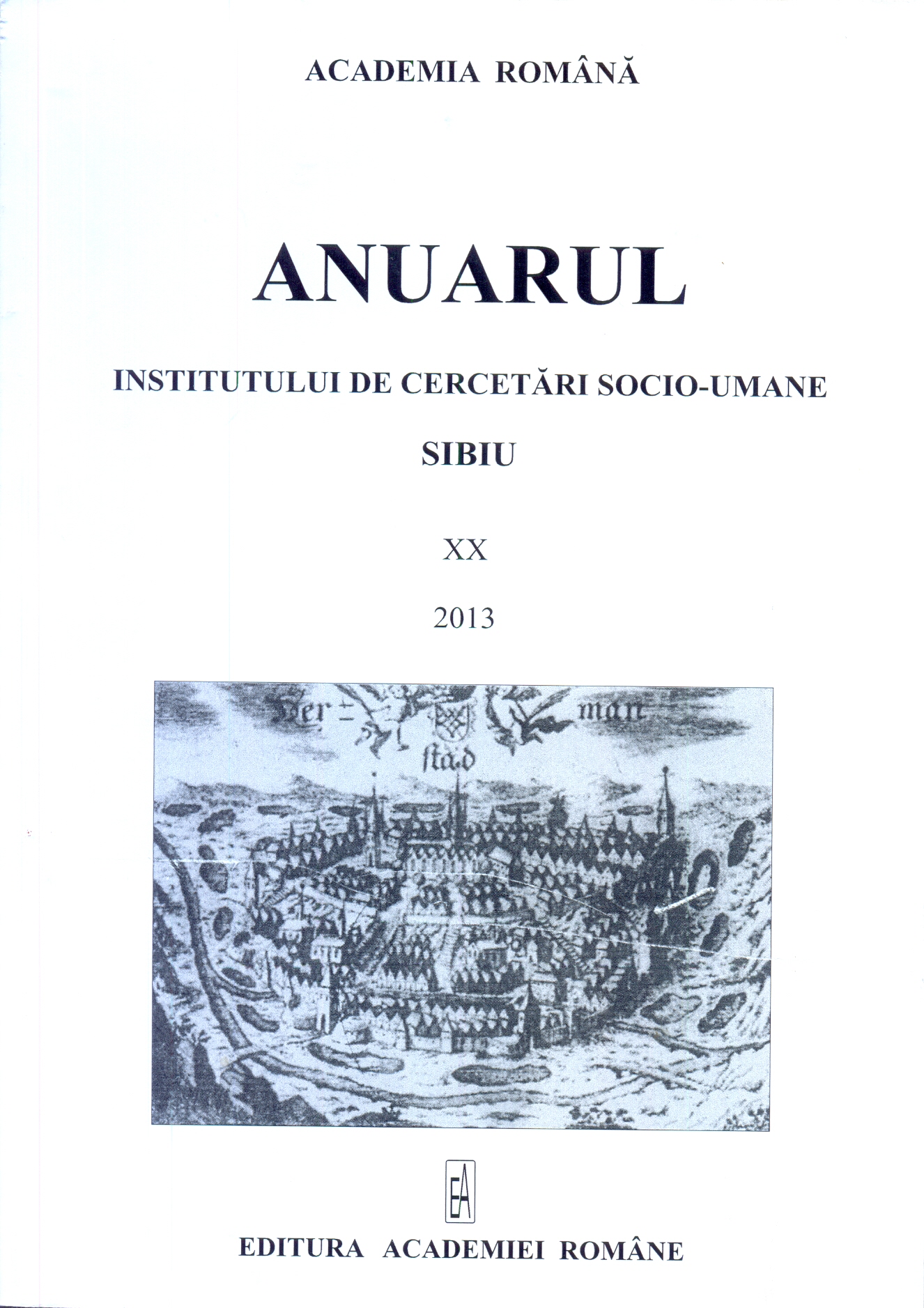
: Only few people in nowadays Romania may actually state who Constantin Argetoianu was and what did he do for his country. Out of those who know, most might consider that his return to the after war Romania had been the greatest error he did in his life, considering the fact that he was arrested, incarcerated at the age of 79 and died in prison in very harsh conditions. So WHY did he come back? A lot of historians consider that the period 1944 -1946 was a curious one for the well-known cynical Argetoianu, who eventually made the leap: despite the warnings, he came back home. Although almost all historians consider that he came with the purpose of creating a new party and ideology, we try to argument that, behind that decision to return, there were a lot of other reasons, such as disease, home sick and the feeling that death was near.
More...
The present article, “A Paria’s Letter”, is a reflection of a moment in General Alexandru Averescu’s career – the statesman, the future Mărăşti hero, the one who, as a War Minister, lead the suppression of the 1907 Rebellion. Although, right after the repression of the rebellion Averescu was considered a real saviour, in time, the useful War Minister’s perception at a political level shifted from “saviour” to “undesirable”. The rebranding, so to be called, proves both the classical cynicism of the political class and the naivety and lack of political experience of general Averescu. This development had been probably one of the reasons that determined the future marechal to enter politics.The minister position brought Averescu many enemies, not only within the army, but also in politics. More precisely he bothered some with his inflexible attitude, various reforms that affected individuals in high army ranks, and a certain degree of infatuation. Ionel I. C. Brătianu, the main artisan of Averescu’s overthrown from the gouvernment, chose a strategy that diminished the prestige of a fair person and, implicitly, the withdrawal of the Conservator party’s support. As a result, Averescu was propelled, in 1907, from his position as a de facto leader of the army.The main document that represents the foundation of the present article is a confession of a soldier to a comrade, reflecting the demeaning situation and the feelings of a person aware of the fact that he is the victim of a political plot, but at the same time a person who refuses to lose faith in his destiny and the elegance of the old times protocol.
More...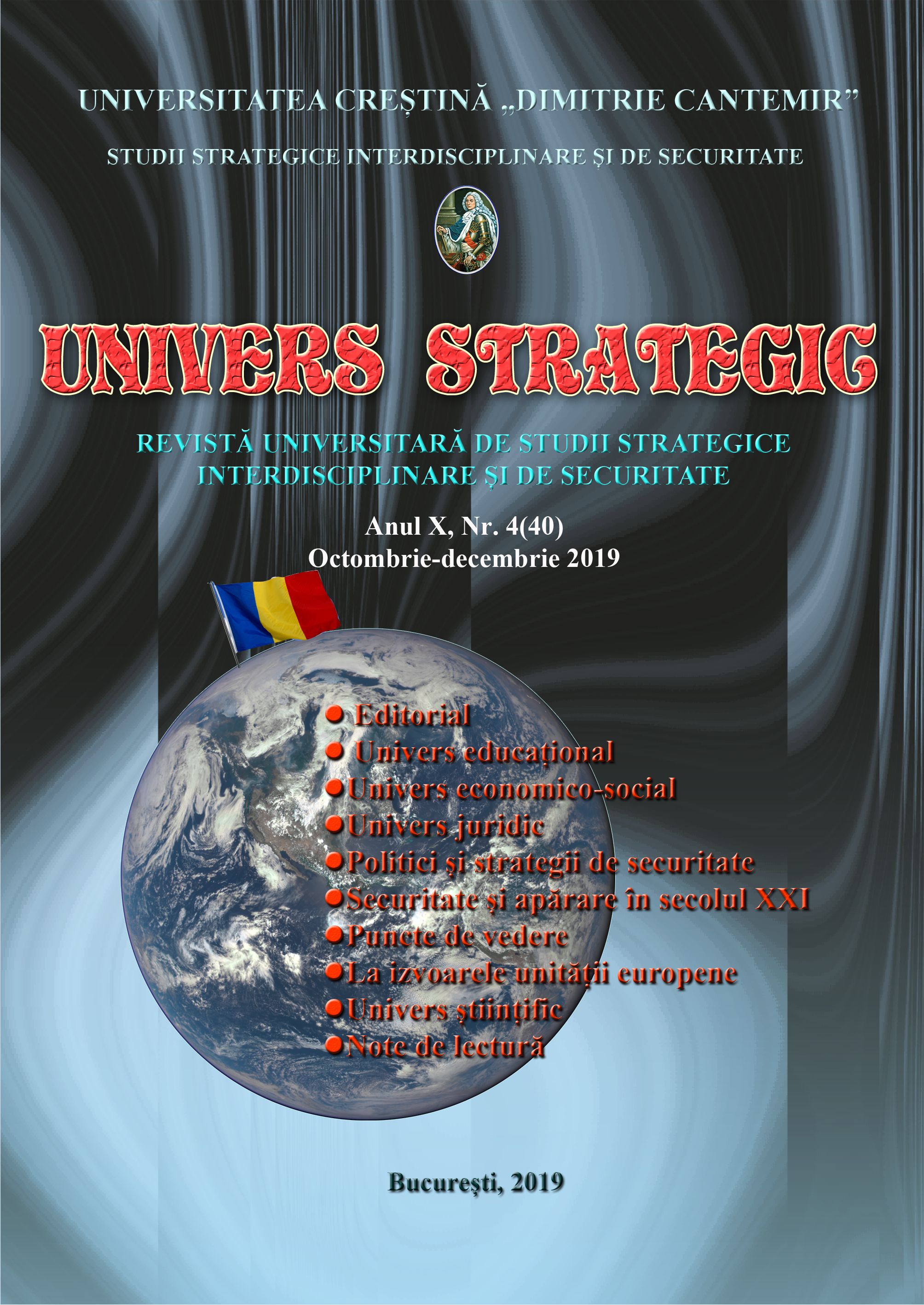
The Sovietization of the Romania Kingdom and its transformation into the People’s Romanian Republic with a regime of dictatorial-communist governance could not have been achieved without a previous K.G.B.-rise imposed by the Moscow tanks. But even more dramatic is the fact that most of these directives (presented now) are still valid in Romania, that is, they work and are still being applied! The removal-K.G.B.-Romania issue must be discussed daily and then, firmly and courageously, passed to the facts.
More...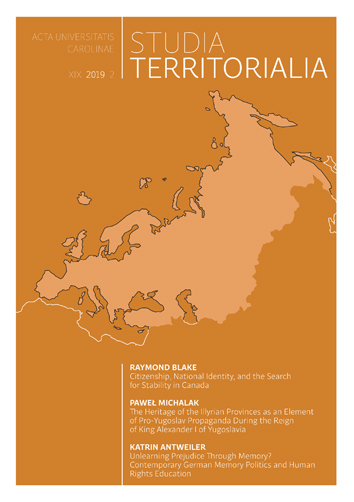
When Canada was created it debated if it was best to seek political solidarity by creating a single political identity or was it wiser to build a citizenship that made space for all communities. This article argues there was no attempt to unite Canadians around a single national loyalty but only to join an array of diverse communities whose members might adopt a shared citizenship. Since 1867, Canada has adopted different approaches to creating citizenship to maintain political solidarity. Diversity has been an integral part of that narrative.
More...
Until 1943, the United Kingdom, and by the middle of 1944 the United States, did not show any interest in the Macedonian issue. Since the beginning of the war, Britain has not at all calculated the possibility of Macedonia being a united, independent state or independent and independent within the Balkan Federation. The middle of 1943 is a turning point in the Great Britain interest in Macedonia. The military actions taken by the National Liberation Army and Partisan detechment of Macedonia against the occupiers did not remain unnoticed by the members of the British military missions arriving on the territory of Macedonia since October 1943. In their reports to the headquarters in Cairo they reported „the appearance of Macedonian armed partisan groups.“ Churchill, as an experienced politician with а very refined sense and assessment of the political situation, immediately asked the various departments of the Ministry of Foreign Affairs to make a full analysis for what was, what is and where the Macedonian question may arise. The shock of the resurrection of the Macedonian question in the political circles of the Ministry of Foreign Affairs, as well as Churchill himself, was great, having in mind that it was already settled for them. But the information about the existence of Macedonian partisans already basically hindered plans for the future arrangement of the Balkans. This information left no doubt that the „Macedonian syndrome“ was reactivated and could bring disruptions to the already defined line for post-war regulation in the Balkans. Therefore, after receiving the information Winston Churchill and the Ministry of Foreign Affairs, they set the policy towards Macedonia: against the idea of forming a South Slavic federation and against the establishment of an independent and united Macedonia.
More...
The subject of this article is the application of the operational technical means of the State Security Service (SDB) in Socialist Republic of Macedonia – SRM (1986 – 1989). The bugging, the secret control of the telephone and the teleprinter and the secret control of the letters and other kind of postal shipments were this means. The aim of these means was to detect, to follow and to impede the activity of internal enemy’s structures, persons who used to act in favor of foreign intelligence services and persons involved in hostile emigration activity. The information according to which SDB in SRM applied operational technical means that were not in accordance with the Constitution and the Law against persons in charge of public and social functions in SRM (against persons in charge of political and state functions) turned out to be incorrect. This was determined on June 6th and 7th, 1989.
More...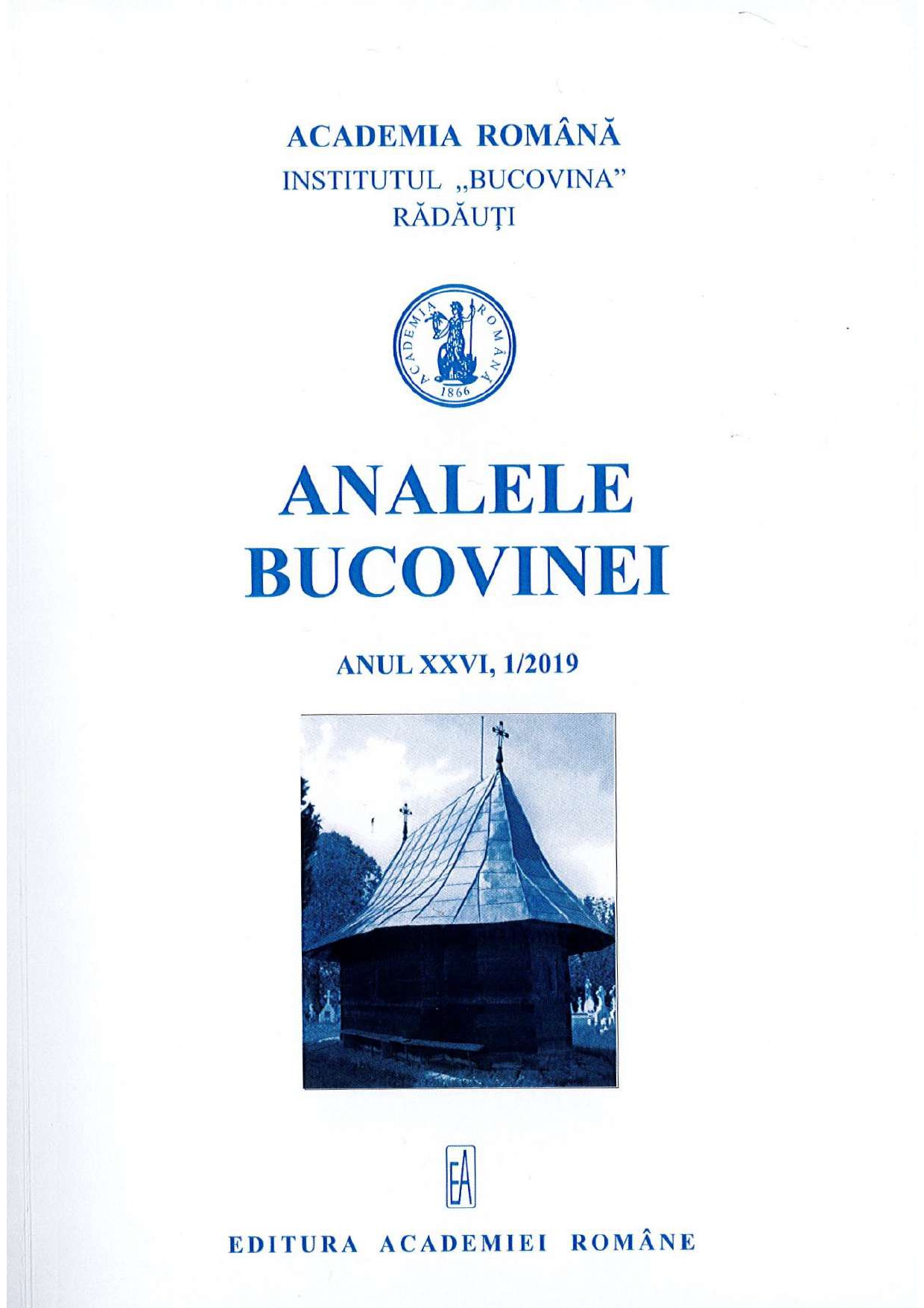
The parliamentary interventions of senator Ion Nistor (heckling, communications, statements), presented in the 1920-1922 parliamentary term, referred to issues related to the unification and administration of Bukovina after its annexation to the Kingdom of Romania (the themes brought into discussion were those about education, civil servants, communication routes, administration of the church fund, population supply). Ion Nistor also participated in the debate and initiation of draft laws and submitted questions regarding the ratification of the peace treaties concluded with Germany, Austria, Bulgaria and Hungary. All these debates that Ion Nistor attended were a good opportunity to clarify their political conception, to bring to question the problems confronting Bukovina in the first years after the union and to provide solutions for the realization of the unification process.I presented in the first part of this document the interpellation of Ion Nistor, held in the Senate session of June 28, 1920, during the debates on the formulation of the answer to the Message of the Throne, which refers to the conduct of the elections in Bucovina, the administrative unification and the “cultural policy in the newly acquired territoriesˮ. In the second part of this document we publish the interpellation held by Ion Nistor in the Senate session of July 9, 1920 (presented in response to George Grigorovici's communication, sitting of the Senate on July 2, 1920) suggestive to highlight the disputes of ideas that existed between Bukovinian lawmakers on the ways of unification and administration of the province.
More...
In the following article, we publish the second part of the memorandum sent to Ion Antonescu by Dorimedont Popovici, and we present his proposals for the establishment of a “new administration” in Bukovina, based on new principles and highly trained officials of great rigour and morality. The most significant part of this text refers to the “Rumanization” of the Bukovina's economy and the “solving of the Jewish problem” in Bukovina. The memorandum in itself reveals a hallucinatory mix of administrative acrimony and anti-Semitic ideas, which were, in fact, the foundations of the policy that led to the Holocaust of the Jews in Romania. In order to better outline the personality of the author of the memorandum, at the end we publish the reaction of I. E. Toroutiu to Popovici’s pleading which addressed Mihai Antonescu, vice-president of the Council of Ministers, who was directly responsible for the administration of Bukovina.
More...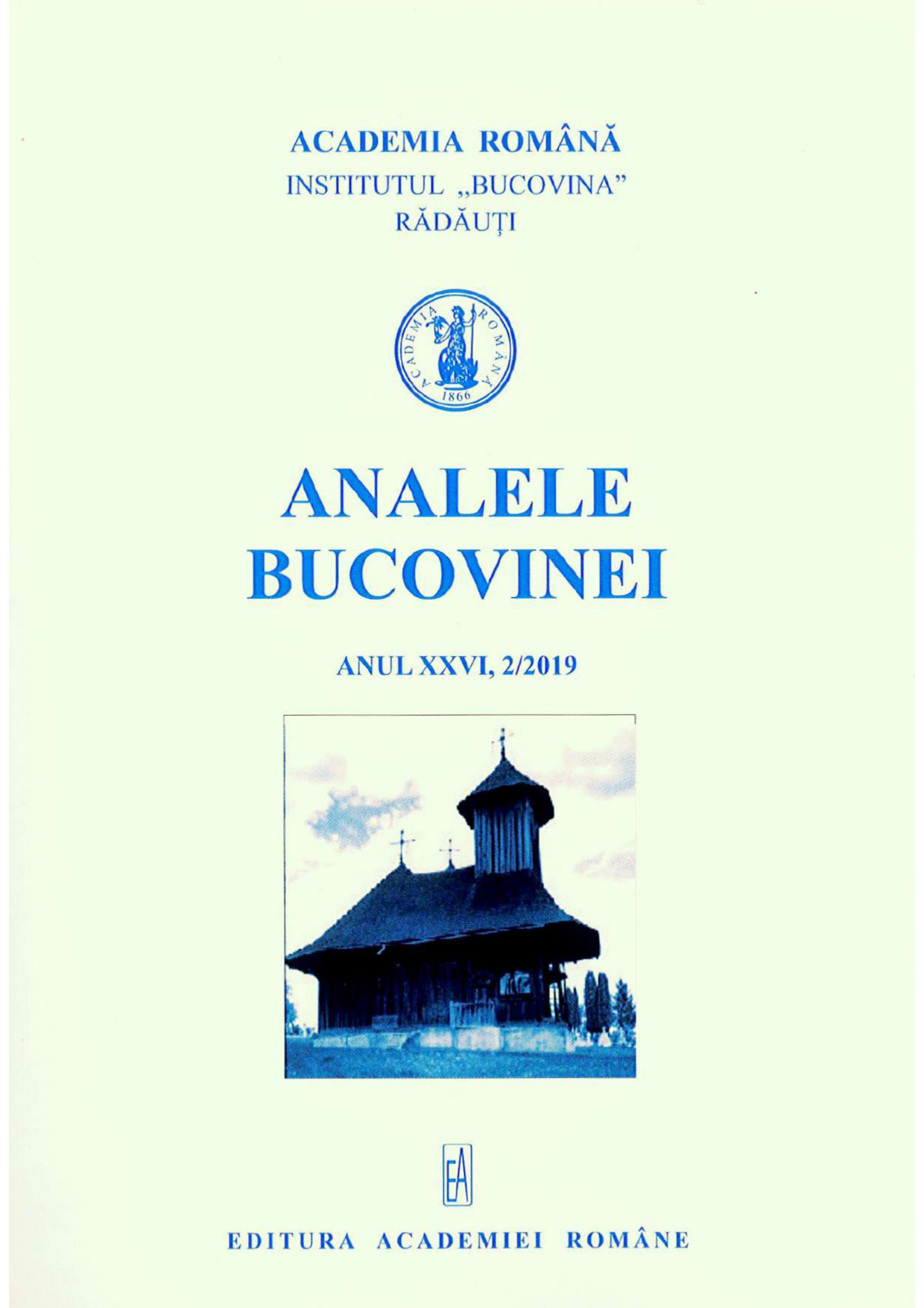
Iacob Pistiner (1882–1930) was since 1911 a member of the Social Democratic Party of Bukovina. Subsequently, he was part of the leadership of this party and was an editor at “Vremea Nouăˮ, a newspaper which appeared in Chernivtsi in January 1919. He was involved in organizing the social-democratic movement in Bukovina, which entered a new stage of development after 1918, and was part of the governing structures of the Social Democratic Party of Romania. As a social-democratic politician, he was openly against Bolshevism and was a member of the Labour and Socialist International Committee. He was elected deputy, after Bukovina’s union with the Kingdom of Romania, during three parliamentary terms (1920–1922, 1922–1926, 1928–1931). Between 1920 and 1922, Iacob Pistiner debated issues related to: the unification and administration of the territories brought together with the Kingdom of Romania, the financial reform, the bill on luxury tax and turnover, the bill on the distribution of school textbooks, the law on the status of public servants, the draft budget, etc. Attracted by the values of democracy promoted by European socialism, Iacob Pistiner militated for Bukovina’s autonomy, defence of minority rights and tax system reform. In the following article, we present three interpellations made by Iacob Pistiner in the Assembly of Deputies on July 23, 1920, May 21, 1921, and July 18, 1921, on topics related to the administration of the reunited territories and to the financial reform.
More...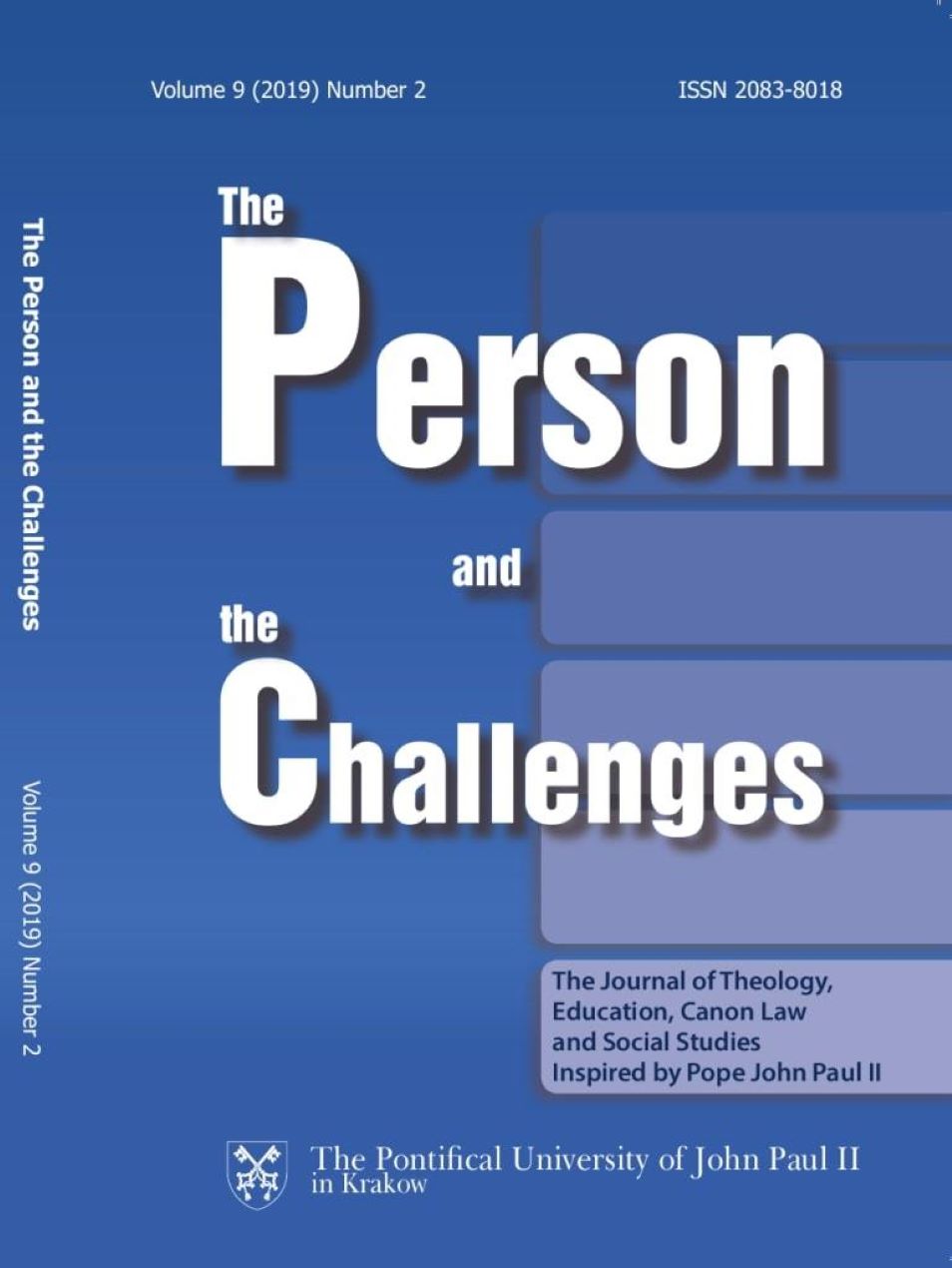
The modern phenomenon of a nation is directly connected with the outcomes of the French Revolution, the latter having predetermined the political, social and economic processes of the 19th century. With cosmopolitan empires becoming, so to say, “incubators” for the nations, the Russian Empire was no exception. Perception of the borders, territories and the population of the empire shaped the processes of capturing new territories, their further attribution to the newly formed imperial historical framework, which in the course of time impacted national constructs. The scientific implications of the phenomenon of an empire and imperial practices triggered the research in the field of imperial history. The tools of image-based geography allow to reveal additional details and peculiarities of states and nations developing within the imperial environment.The author focuses on the processes of projecting, mapping and visualizing the territories with their ethnic population. The article demonstrates the ways the political relevance impacted the layouts of regions, borders and demographic characteristics.
More...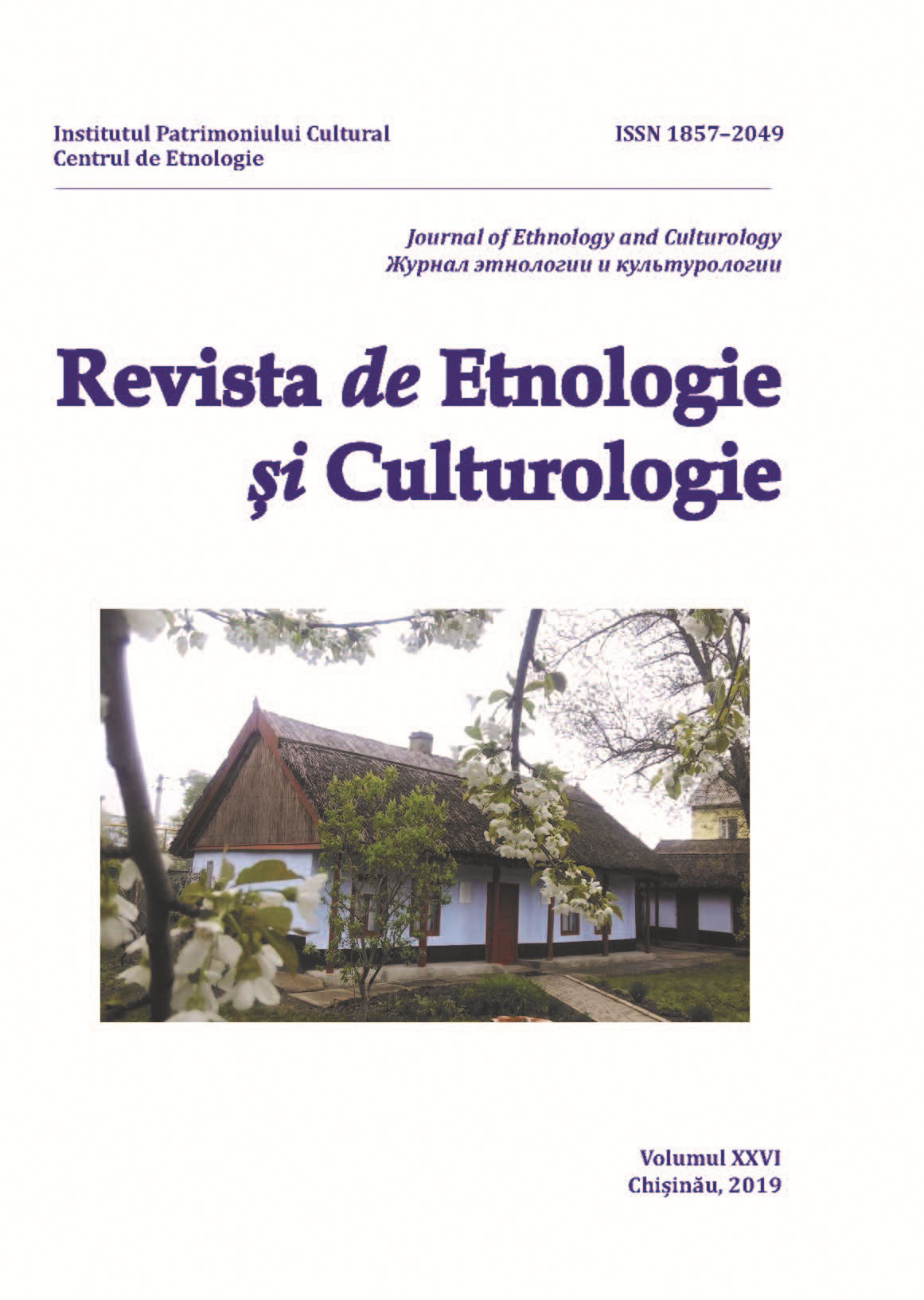
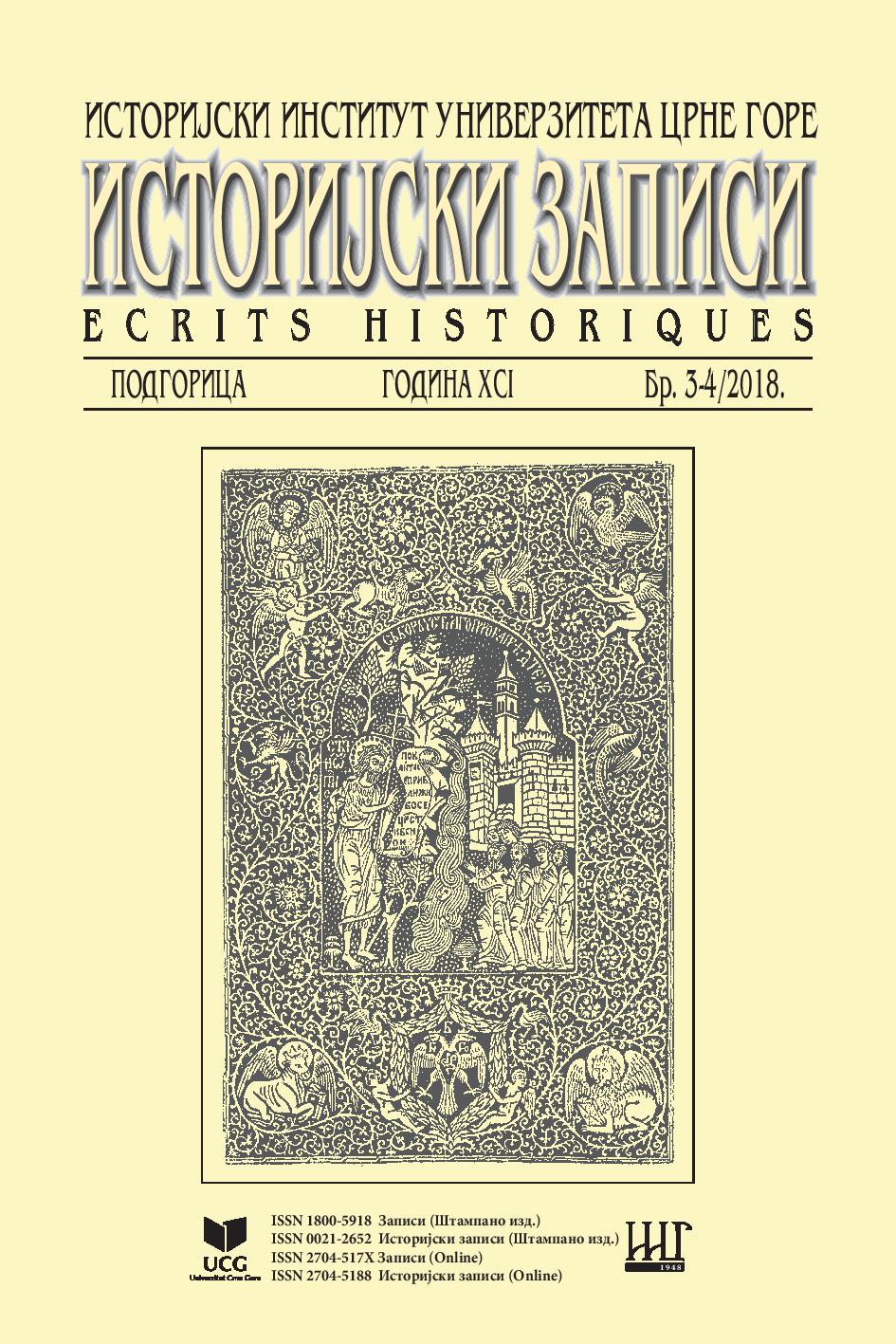

The 31 March Incident is one of the important developments in the Ottoman-Turkish political life. This event, which emerged in Istanbul with the declaration of the Second Constitutional Era, first developed as a military revolt, but in time it became a religious state. As a result of the events that caused many soldiers and civilian casualties, Abdul Hamid II. was brought down from the throne and replaced by Mehmed Reşad V. The political thoughts that emerged with the announcement of the Second Constitutional Era caused different polarizations in the society. With the reflection of this tension in the society to the army, the school-sarcastic tension emerged within the army. The Committee of Union and Progress, which tried to provide political activity in this period, had an important share in the emergence of the 31 March Incident. The Committee of Union and Progress, which could not fully control the political administration despite the proclamation of the Constitution, caused an increase in political instability. This article examines the 31 March Incident caused by political tensions in society and the military,and discusses the effects of this event on Ottoman-Turkish political life.
More...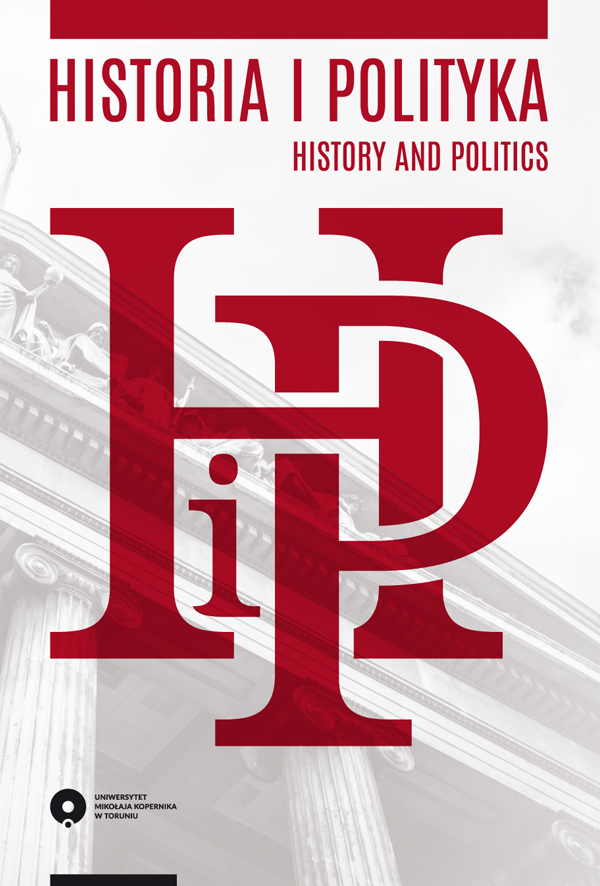
The aim of the paper is to present the image of Kharkiv in propaganda materials from the period of Leonid Brezhnev’s rule addressed to foreign recipients. Three key threads repeated in narratives about Kharkiv were distinguished by the author: the relative “youth” of the city, its industrial character and the functioning of a strong academic center. The critical analysis of the propaganda discourse is based on the assumption that the language used was the carrier of ideology, i.e. it did not report reality, but its ideological vision. The image of Kharkiv emerging from the analysis is a vision of a city fulfilling the model Soviet standard: neither a communist ideal that Moscow was nearing, nor one with the exotic flair of the Caucasus or Central Asia. It was a Soviet model typicality: a large, modern industrial metropolis, ideologically correct, exemplifying the core, Slavic-European part of the USSR. Thus its promotion was in fact the promotion of the Soviet system as a whole.
More...
The article presents the issue of the return to physical border constructions, what scientists describe as fencing policy, or teichopolitics, in the context of improving the border protection systems. It can be noted as a contrast to globalization, that has been perceived for years as the process of opening to the world and lifting the boundaries. It is also increasingly considered as an element of social bifurcation, which changes the perception of state borders. The contemporary bordering process focuses on the construction of smart fences that can invisibly protect states from emerging various external threats. This article aims to provide a bordering process framework and get answers to the questions about the reasons for this process and future direction of border walls/fences development.
More...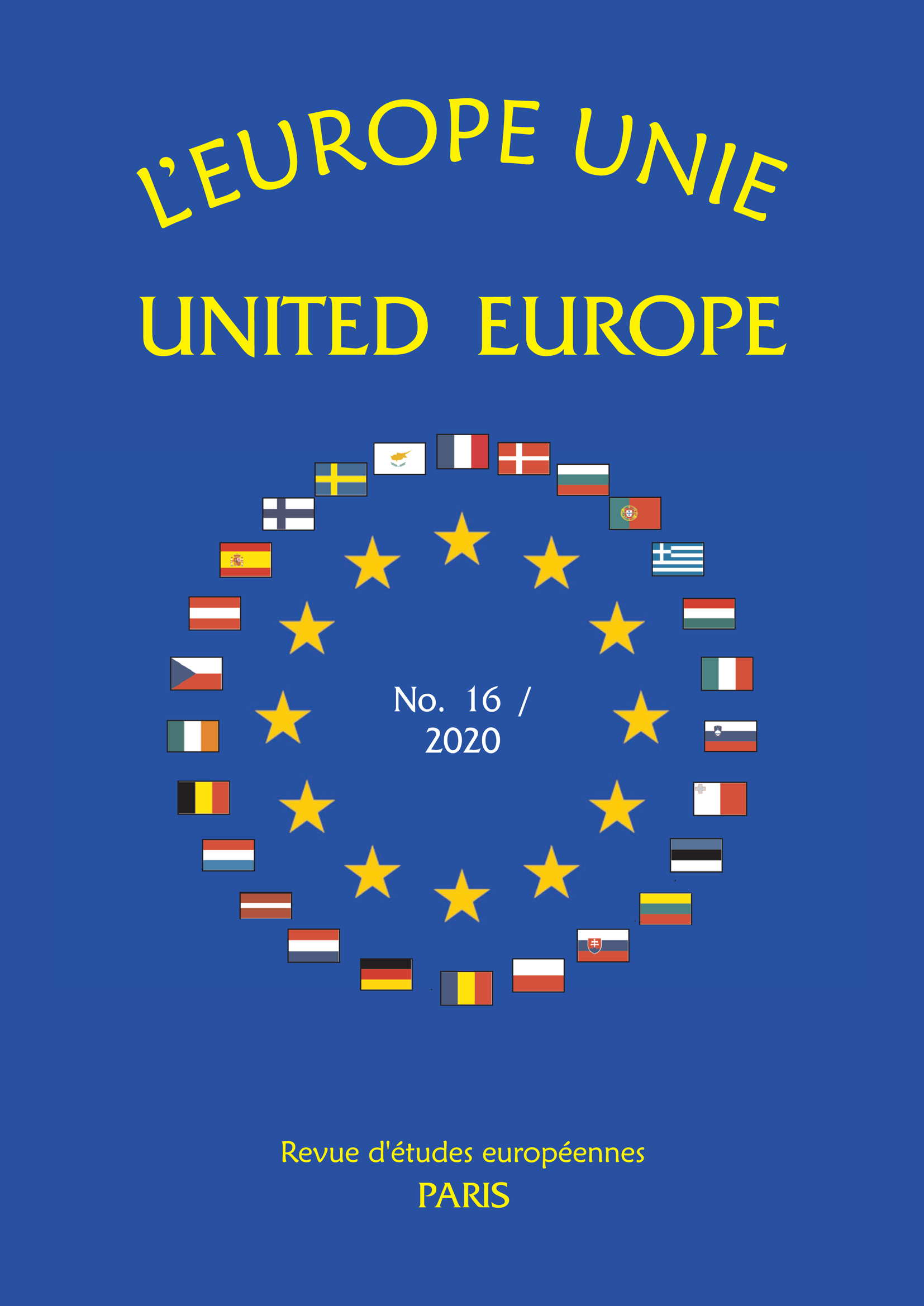
Tunisian society in the 19th century: organization, powers and authority during French colonization (1880-1883). This article aims to analyse authority in traditional Tunisian society of the 19th century. A society marked by tribal ties and the influence of religious leaders. Authority takes many forms; it varies constantly, and obeys outside influences. The community bond and the religious fact are inseparable segments in the life of the tribes. In this classless society, the power has difficulty in imposing its authority, hence the arrangements and concessions of the central power in order to calm the most turbulent tribes.
More...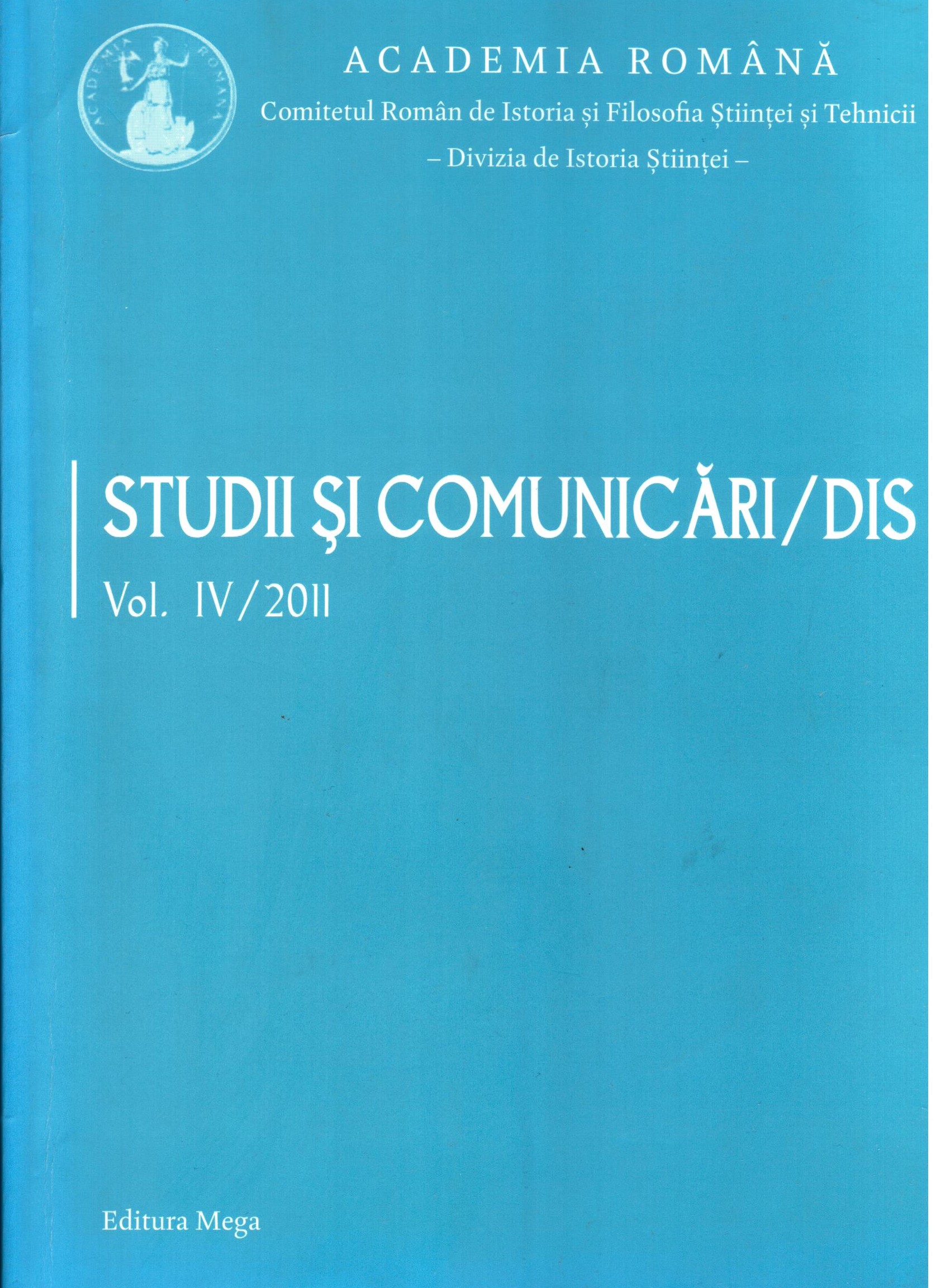
In 1897, Marshal Constantin Prezan purchased the Schinetea Estate, in the village of Dumeşti, Vaslui County. It is the place where the great warrior could find temporary peace, after he accomplished his mission in front of the Great General Headquarters of the Romanian Army during the National Reuni fication War. It is also the final resting place, after he died, at the end of August 1943. After 1990, when she succeeded in regaining the possession of the estate, Dr Olga Macarie, Marshal’s granddaughter, has led a continuous struggle with the authorities, as well as with the attitude, ignorance and indifference of the contemporaries, in order to put this area of remarkable historical resonance to rights.
More...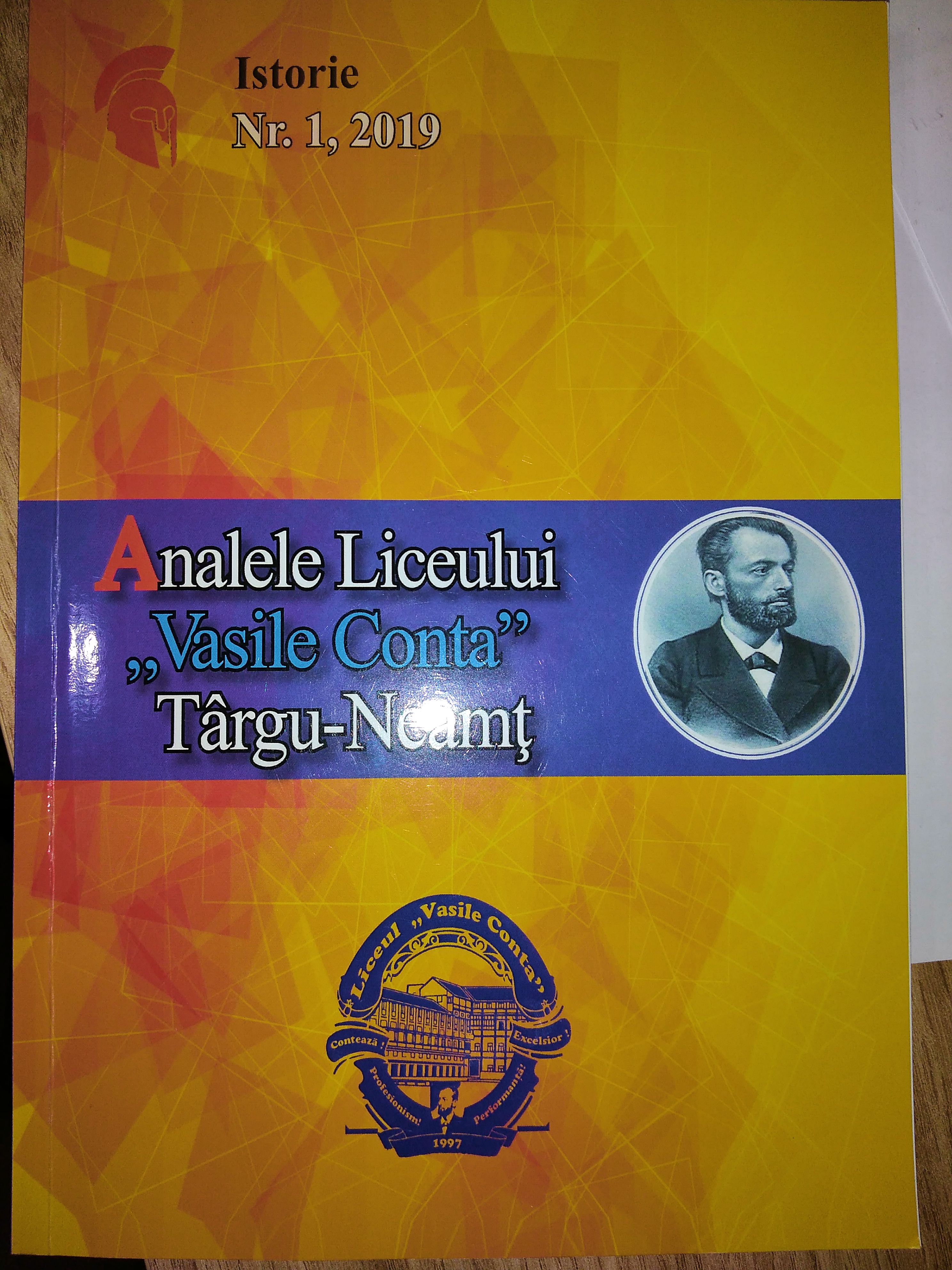
We are focusing our attention by this study on a theme of Romanian historical mythology:the royal dynasty of Romania from Carol I to Carol II. The Romanian royal dynasty has linked itsname to the great achievements of modern Romania and has benefited, in the most part of the reigns,by a strong capital of popularity. Mythicization took place naturally and justified, but also benefitedfrom the support of official propaganda. Carol II, a pioneer of the aggressive use of politicalpropaganda, instituted an authoritarian regime, but failed toproperly manage the internal and externalpolitical situation, putting an end to democracy and collapsing the borders of Great Romania. Hisdemythicization was swift. Not the same thing we can say about the myths of Carol I, Ferdinand orMary, powerful even nowadays.
More...